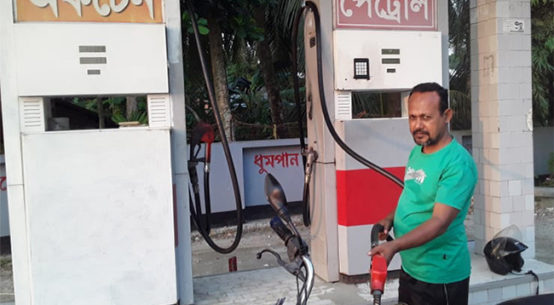
We are getting news of repeated clashes and loss of lives over the participation in upcoming Union Parishad (UP) polls which have almost become a one-party competition thanks to the boycott by several political parties including the Bangladesh Nationalist Party (BNP). Two people have been killed and 52 others have been injured in clashes between supporters of rival candidates in eight districts ahead of the November 11 elections. Earlier, three people died in a span of only a few days. Such news shocks us as well as creates concern.
The clashes over the UP elections are taking place mainly between the followers of the nominated and rebel candidates of the ruling Awami League. Elections for the chairmanship and membership of 848 Union Parishads are scheduled to be held on 11 November. The number of rebel candidates among them is 691. That the ruling party, AL, has not been in a comfortable state over party nominations is evidenced by the party’s action which is keeping the competition open in many places by not nominating anyone from within the party. Earlier, candidatures were kept open in several unions in Madaripur. In the forthcoming elections, at least eight members of parliament reportedly have requested the prime minister and the AL chief to keep the contest open by not nominating anyone from the AL in their constituencies.
All these not only raised a question mark over this year’s UP elections but also disrupted the main purpose of the polls. The elections must be held in a peaceful environment so that voters can exercise their voting right without hindrance. But the field of contest has shrunken as many parties, including the BNP, have boycotted the elections. Where the nomination of the ruling party guarantees 100% victory, the opposition cannot be blamed for their boycott of the polls. The Jatiya Sangsad opposition, Jatiya Party, has also expressed frustration over the elections.
The tradition of the local government in our country is quite old. It not only delivers government services to the people but also ensures people’s empowerment at the grassroots level. In the past, when local government elections were held on a non-partisan basis, there were fewer clashes. There would have been some balance of power in the governance structure of a centralised Bangladesh. According to many experts, the local government system has now become an extended version of the ruling party. The purpose of any election is to give the people an opportunity to choose their representatives freely. But when the candidature at the UP election is withdrawn at the fingertips of the MPs or if there is a tendency to win someone without contest, it is better to call it a selection and not an election. It is the responsibility of the Election Commission to conduct the election. The Nurul Huda Commission has completely failed to fulfil the national responsibilities entrusted to them. In that case, the question also arises as to whether the commission has the moral authority to conduct elections for the rest of its term. The Election Commission can, at least, postpone the polls where they think there is no conducive environment. At least, the loss of life and property can be avoided. The country does not want an election which is mired with conflicts or held only to observe the rules.


